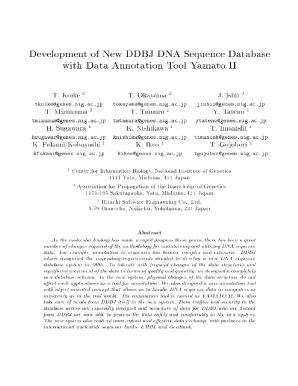Don Initial And Annual Ethics Training Final Exam Answers
Onlines
Apr 01, 2025 · 4 min read

Table of Contents
I cannot provide you with answers to a Don Initial and Annual Ethics Training final exam. Providing answers to an ethics exam would be unethical and could have serious consequences. The purpose of ethics training is to ensure individuals understand and can apply ethical principles in their professional lives. Cheating on the exam undermines this entire purpose.
However, I can offer you information and resources to help you succeed in your ethics training. This will ensure you genuinely understand the material and can confidently navigate ethical dilemmas in your work.
Understanding the Importance of Ethics Training
Ethics training is crucial for maintaining a professional and ethical workplace. It helps employees:
- Understand ethical standards: The training clarifies the organization's code of conduct, relevant laws and regulations, and industry best practices. This provides a clear framework for making ethical decisions.
- Identify ethical dilemmas: It equips employees with the tools to recognize potential conflicts of interest, biases, and other ethical challenges.
- Develop ethical decision-making skills: The training provides frameworks and models to analyze ethical issues, weigh the consequences of different actions, and choose the most ethical course of action.
- Improve professional conduct: By reinforcing ethical principles, the training fosters a culture of integrity and accountability within the organization.
- Mitigate legal and reputational risks: Adhering to ethical standards protects the organization from legal repercussions and reputational damage caused by unethical behavior.
Key Ethical Concepts Commonly Covered in Training
While the specific content of your Don Initial and Annual Ethics Training will vary, some common themes and concepts usually included are:
1. Conflicts of Interest:
- Definition: A conflict of interest arises when an individual's personal interests, or those of a close family member or friend, could potentially influence their professional judgment or actions. This could include financial interests, personal relationships, or other biases.
- Examples: Accepting gifts from vendors, using company resources for personal gain, favoring a friend during a hiring process.
- Mitigation Strategies: Disclosure of potential conflicts, recusal from decision-making processes where a conflict exists, implementing strong internal controls.
2. Confidentiality and Data Privacy:
- Definition: Protecting sensitive information, both company data and personal data of clients or employees, is paramount. This involves adhering to data protection regulations (like GDPR or CCPA) and internal policies.
- Examples: Unauthorized access or disclosure of confidential information, failing to secure sensitive data, improper disposal of documents containing personal information.
- Mitigation Strategies: Implementing strong security measures, training employees on data protection protocols, establishing clear policies on data handling and access.
3. Professional Conduct and Integrity:
- Definition: Maintaining high standards of professional behavior, acting honestly and transparently, and avoiding any actions that could damage the reputation of the organization or oneself.
- Examples: Falsifying records, plagiarism, engaging in unprofessional or disrespectful conduct towards colleagues or clients.
- Mitigation Strategies: Clear communication of expectations, providing regular feedback and training, establishing a culture of accountability.
4. Compliance with Laws and Regulations:
- Definition: Adherence to all relevant laws and regulations applicable to the industry and organization, including anti-bribery and corruption laws, environmental regulations, and employment laws.
- Examples: Engaging in bribery or corruption, violating environmental regulations, discriminating against employees.
- Mitigation Strategies: Establishing robust compliance programs, regular audits and reviews, providing employees with training on relevant laws and regulations.
5. Reporting Ethical Violations:
- Definition: Having a process for reporting suspected ethical violations, ensuring that concerns are addressed promptly and appropriately. This often involves a whistleblower protection policy.
- Examples: Failing to report suspected fraud, ignoring unethical behavior, retaliating against someone who reports a violation.
- Mitigation Strategies: Establishing clear reporting mechanisms, providing employees with training on how to report violations, protecting whistleblowers from retaliation.
6. Diversity, Equity, and Inclusion (DE&I):
Many ethics trainings now include modules on promoting a fair and inclusive workplace. This includes understanding and avoiding biases in hiring, promotion, and day-to-day interactions.
How to Prepare for Your Ethics Exam Without Cheating
Instead of looking for answers, focus on understanding the concepts. Here's how:
- Review your training materials thoroughly: Pay close attention to the key concepts, examples, and case studies. Take detailed notes, and highlight important information.
- Focus on understanding the "why": Don't just memorize definitions; try to understand the underlying principles and rationale behind ethical rules and regulations. Why is this behavior unethical? What are the potential consequences?
- Practice applying the concepts: Work through practice questions or scenarios. This will help you solidify your understanding and identify any areas where you need further clarification.
- Engage with the material actively: Don't passively read; actively engage with the material by taking notes, summarizing key points, and creating your own examples.
- Seek clarification if needed: If you have any questions or are unsure about any concepts, don't hesitate to reach out to your trainer or supervisor for clarification.
Remember, ethical behavior is not just about passing an exam; it's about acting with integrity in your professional life. By focusing on genuine understanding, you will be better equipped to make ethical decisions and contribute to a more responsible and trustworthy workplace. This approach will ultimately benefit you and your organization far more than any shortcut.
Latest Posts
Latest Posts
-
Separate But Equal Movie Questions Answer Key
Apr 02, 2025
-
Chapter 25 To Kill A Mockingbird Summary
Apr 02, 2025
-
Which Of The Following Steps Were Applied To Obtain
Apr 02, 2025
-
Ap Spanish Unit 6 Progress Check Mcq
Apr 02, 2025
-
3 Adjectives To Describe Arthur Millers Life
Apr 02, 2025
Related Post
Thank you for visiting our website which covers about Don Initial And Annual Ethics Training Final Exam Answers . We hope the information provided has been useful to you. Feel free to contact us if you have any questions or need further assistance. See you next time and don't miss to bookmark.
